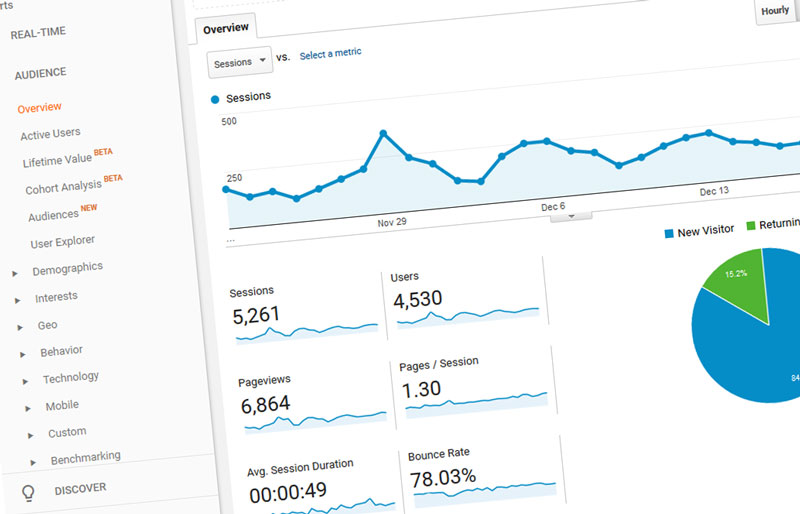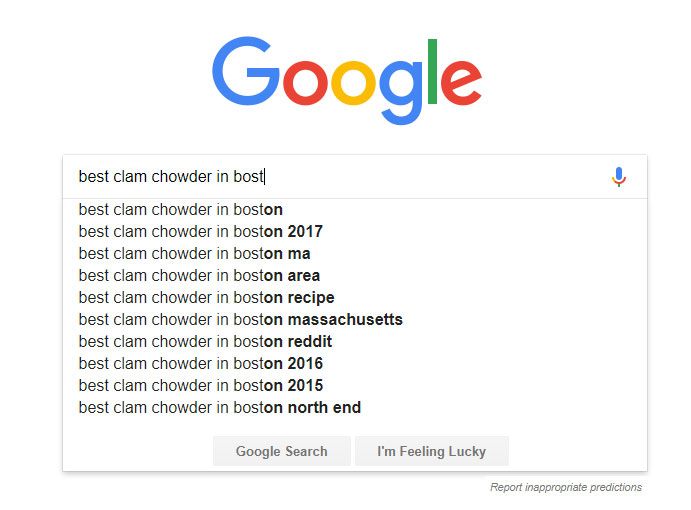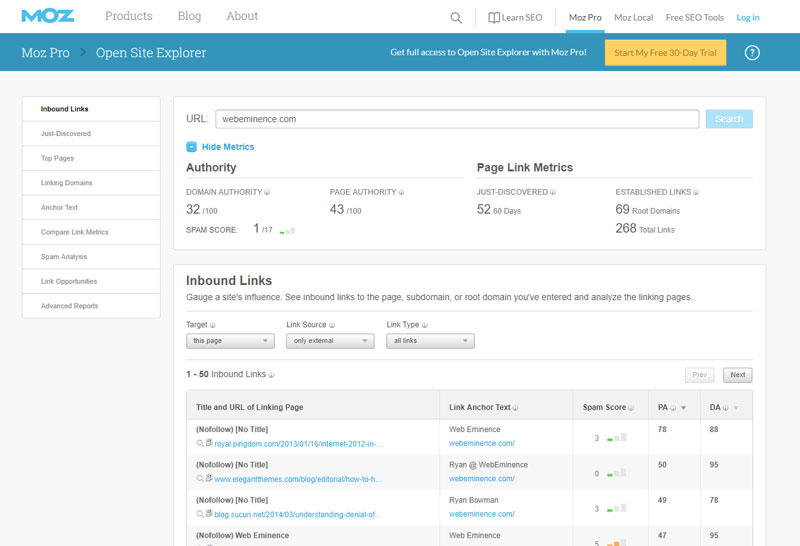
Maybe you’re 12 months into a contract with an SEO agency and you’re wondering if you should continue working with them. The problem is you have no clue on how to evaluate the work they are doing.
I’ve interacted with many people paying $500-1,000+ per month for SEO services who aren’t really sure what they’re getting. It’s as if people think that just because they pay for Search Engine Optimization, they will automatically get results. Unfortunately, that’s not the case since there are a lot of SEO companies out there that are questionable at best, and at worst are actually scamming people.
So here are some ways to evaluate if you’re getting value for your money.
#1 Reporting and Communications
This tip should come as no surprise, but it’s important because I spoke to one small business owner paying $800 per month for SEO for over a year and was not getting any report of monthly activity or long term progress. He wasn’t really sure what was being done or what he paid for. He also wasn’t experiencing any increased exposure and business in line with the monetary investment in SEO.
Obviously, this is a problem with due diligence on the part of this business owner. He’s not doing the work, but he’s in it now and needs to decide whether or not to continue.

If you’re paying any service business for their services, you expect good communication, and it’s no different with an SEO agency. At minimum, you want to get a periodic (probably monthly) report of activities and progress.
So what should be in the SEO reports?
One thing you don’t want in the reports is regurgitated Google Analytics reports. You should be able to look at your own Google Analytics account, so there’s not much value to you if your SEO agency is just sending you a report full of Google Analytics stats.
It’s OK and helpful to include a summary of traffic stats in the report, but that should NOT be all that is in the report. So what else should be in the report? Here are some things I would look for:
- Summary of traffic stats
- Report of activities completed this period
- Ranking stats for specific keywords targeted
- Overall growth in domain authority and traffic
- Suggestions and plans for the future
And there’s certainly more to communication than just sending reports. Do you understand the reports? If you don’t, that’s a problem. If you don’t understand the reports or you want more info, can you easily get ahold of the company and get the answers you need? If not, this is a big red flag!
#2 Meaningful Keyword Targets and Rankings
For years, the holy grail of SEO has been page 1 and position 1 rankings. No matter what the keyword is, an SEO company or business owner often touts rankings in the top spot for keywords that have no meaning or volume. For example, an electrical company might rank for the search “top electrical contractor in bangor maine with insurance.”
Their SEO agency might point to those rankings and other rankings for long-tail keywords (less competitive keyword searches with 3 or more words) as proof that they are doing their job.

It’s always good to see #1 rankings, but the truth often is, that long-tail search term actually has ZERO searches every month so it does you no good.
You want your SEO agency to be targeting keywords that have meaningful search volume and this often means they are 5 words or less. The SEO company for this electrical company in Maine would be smarter to focus on some of the keywords below:
Electrical contractor bangor
Top electrical contractor maine
Electrical company bangor maine
If those shorter keywords are the target and you begin to see rankings for those keywords on page 1, the chances are good that you’ll rank for the long-tail keywords as well.
#3 Focus on Growth in Authority – Not Just Keywords
Due to changes by Google over the last several years, SEO strategy has been shifting to focus more on authority than just keywords. “Authority” in this case refers to the overall reputation of a domain an its ability to rank in search engines.
In the dark ages of search engines, the page with the highest relevance to a keyword search (or even whatever pages had the keyword in a meta tag) would often show at the top of the results without any scoring of the quality and reputation of the domain. Now, the authority of a domain plays a much larger role in determining where sites rank.
As machines continue to get “smarter”, there has been new focus on semantic search where Google is interest in the intent of searches rather than just the actual words that make up the search phrase.
For example, someone might be visiting Boston for the first time and searching for best clam chowder in Boston.

Even though they aren’t including the word restaurant in their search, Google is smart enough to connect the dots and return links and maps to nearby restaurants. There might also be a blog post covering the “Top 10 restaurants offering clam chowder around Boston.” While recipes for clam chowder may have been presented in the results 15 years ago, Google is now smart enough to know that this searcher is more interested in restaurants than recipes.
So focusing on the 5 words best + clam + chowder + in + boston and doing your typical SEO optimizations around those words is still a valid strategy. But a restaurant or blog should also aim at becoming the leading authority that answers that question in all the different ways that it might be phrased and ALL the other popular questions around clam chowder in Boston!
So how do you become an authority in a topic area?
That’s too massive a topic to tackle here but here are 44 ways.
#4 Some Tools To Evaluate Your SEO Agency
Utilizing some of the free tools out there to evaluate what’s going on with your SEO is an effective way to check up on your SEO agency and make sure they are getting you some real tangible results.
SEMRush.com
SEMRush is a popular tool in the SEO industry that offers some decent stats for free. All you have to do is type in your domain and you can see some traffic estimates and a bunch of other data on your account.
One useful place to look in the SEMRush is your organic traffic history. This is something you could look at in Google Analytics but if you don’t have access to it for some reason, you can take a quick glance at SEMRush to see your traffic over time. This is just an estimate, but if your SEO agency is doing solid work, you would obviously hope to see this increasing over time.
Alexa.com
Alexa is a website analytics company that has been around for a long time. They offer a number of analytics similar to SEMRush, but they are well-known for their traffic rankings where they rank the top sites in the world (Google #1, Youtube #2, Facebook #3, etc.). I’m guessing you’re not in the top 10, but Alexa ranks sites into the millions, so your site should be on there if you have any meaningful traffic.
It’s fun to track your rankings over time and if you’ve been paying an SEO company for a year, you’d probably want to see a traffic ranking in the 6 figures (under 1 million). If you’re in the millions or your site has no ranking, that’s a problem and you might want to see why your site traffic is so low.
WooRank
WooRank is a great tool that an SEO agency might use to give you reports. You can also use their free report to check up on your SEO agency and get some recommendations that you can pass along to them. This is useful for educating yourself but also for determining where your SEO company may not be getting the job done.
I did a video review on WooRank that will help you understand everything that it can do.
OpenSiteExplorer from Moz.com
Last but not least, OpenSiteExplorer is an industry standard for measuring a domain’s authority. They publish a number known as domain authority that assigns a score 1 out of 100 to measure your site’s ability to rank in search engines.
A brand new site will probably have 0-2 as its domain authority, but with some effort your SEO company should be able to increase it over to a number over 10 within six months and hopefully over 20 or 30 in a twelve months. If you don’t see the domain authority increase over the long term, this is another red flag. This number is based on many factors, but the biggest factor is incoming links. When other sites link to your site, it’s a signal to search engines that your site is valuable and raises its authority. A good SEO strategy should include a method for obtaining incoming links to your site to raise traffic, authority, and rankings.
How Does Your SEO Company Measure Up?
So how does your SEO company measure up after employing all these checks? Let me know in the comments below and feel free to ask any questions about evaluating your SEO company.



